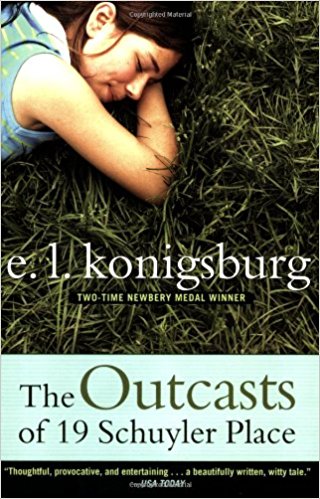The Rose brothers, Morris and Alexander, are Jewish immigrants from Hungary who share a jewelry business and a house. They have also collaborated for 45 years on building three towers of scrap steel in their backyard. Now taller than any of the surrounding houses, the towers are decorated with thousands of pendants—gears from old clocks, shards of colored glass, bits of porcelain—that sparkle in the light and sing softly in the wind.
Alex’s and Morris’s 12-year-old great-niece, Margaret, loves the towers almost as much as she loves the uncles. Her parents have gone to Peru for the summer without her, so she’s sent to camp, where catty girls in her cabin make her miserable. After her first few wretched days there, Alex comes to take her to his and Morris’s house. The two uncles are distinct characters, each with his own style and foibles, both full of unhurried Old World charm. They use a real linen tablecloth and crystal wineglasses at dinner every night and have never eaten at McDonald’s. They get irritated with each other and argue but always with underlying love for each other and for Margaret.
Margaret soon learns that the town plans to demolish the towers as part of an urban redevelopment campaign. The uncles have fought the demolition but are now resigned to defeat. Margaret, however, is angry and plots a way to save the towers. She wonders, “What made the home owners and the redevelopment people think they had the right to destroy something that had been part of the town for longer than they had been?”
This book offers insight into the power of perception (are the towers structures that have been built without a permit, or works of art?), civil disobedience and the evolution of a neighborhood—from factory housing, to a warm multiethnic neighborhood of immigrants, to urban blight and crime, to gentrified quaintness.
With the help of three adult collaborators whom she seeks out—and eventually some allies she never expected—Margaret embarks on her mission and eventually succeeds. Readers will enjoy the dry wit in this book and cheer for Margaret and her uncles.



